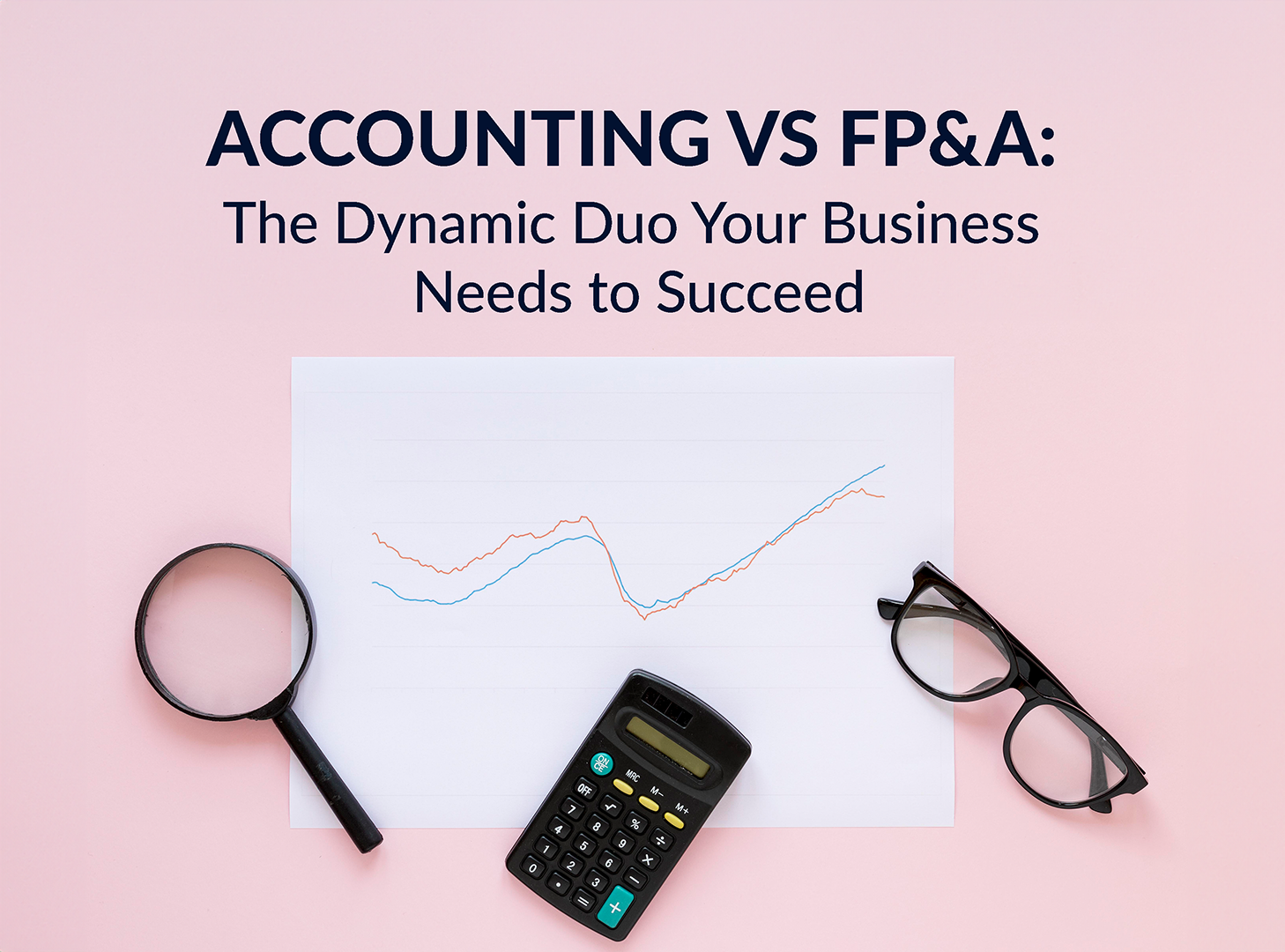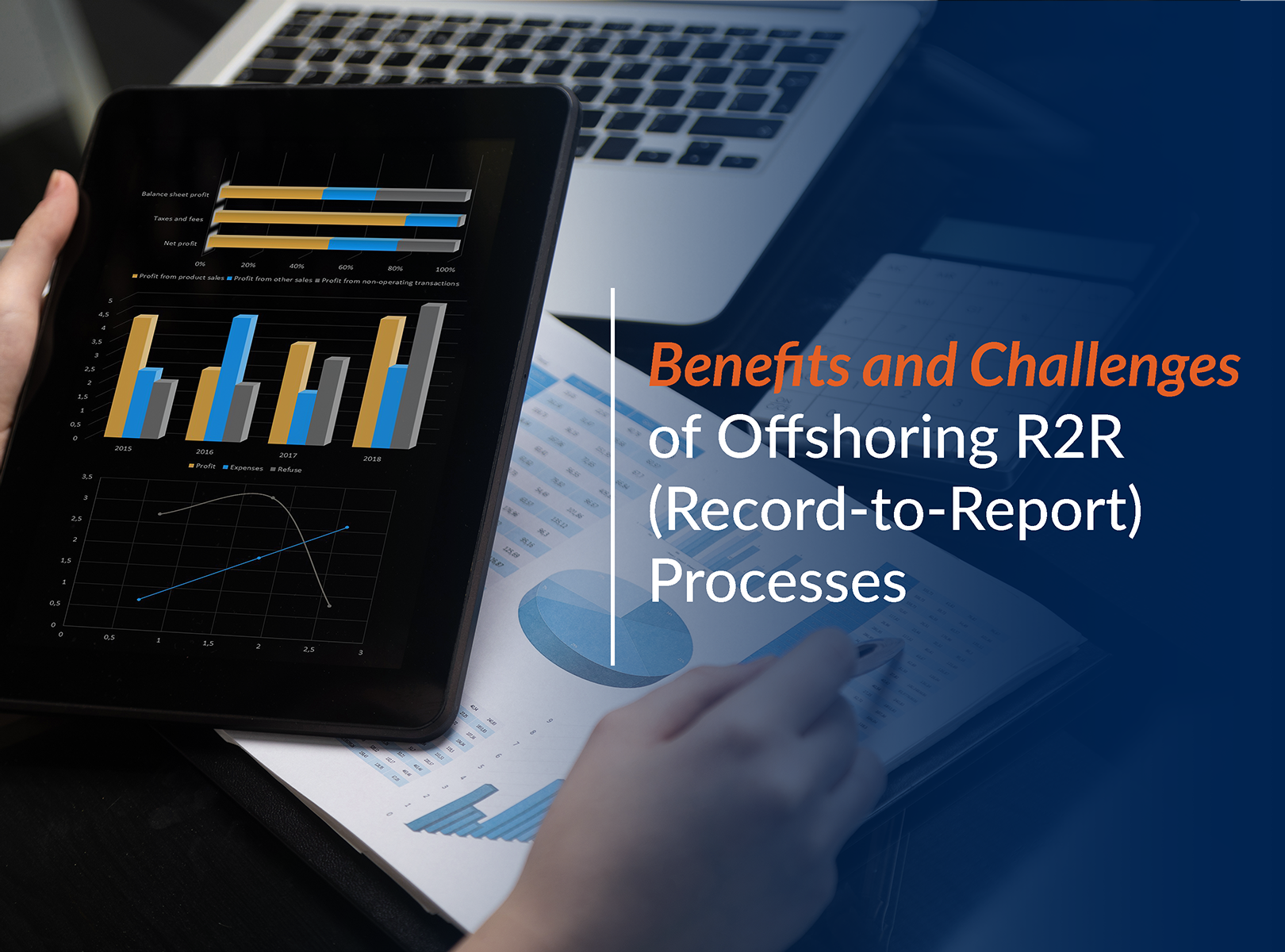If you want to ensure effective financial management within any organization, it’s crucial to understand the distinctions between Financial Planning and Analysis (FP&A) and Accounting. These functions are integral for a company’s financial health and guiding strategic decision-making.
In this blog, we will delve into the nuances of FP&A vs accounting, exploring their respective roles, responsibilities, and impact on business strategy and operations. Because while both are indispensable components of financial management, their differences are significant, influencing how companies plan, analyze, and execute their financial strategies!
Understanding Financial Planning and Analysis (FP&A)
In the world of finance, FP&A stands for Financial Planning and Analysis. Essentially, it’s the department responsible for mapping out the financial future of a company. Let’s break down what this means and what FP&A professionals do:
- First off, FP&A professionals are the ones who crunch the numbers to help the company plan its financial journey. Their main job is to forecast how much money the company will make and spend in the future.
- Budgeting and forecasting are at the heart of FP&A. This means figuring out how much money the company should allocate to different activities and predicting what its financial situation will look like down the road. It’s like creating a roadmap for the company’s finances.
- But FP&A isn’t just about predicting numbers. It’s also about analyzing how well the company is performing. FP&A professionals look at things like sales numbers, expenses, and profits to see where the company is doing well and where it could improve.
- Strategic planning is another big part of FP&A. This means helping the company figure out where it wants to go and how it’s going to get there financially. It’s about making sure the company’s finances align with its overall goals and strategy.
- To do all this, FP&A professionals use a variety of skills and tools. They need to be good with numbers, of course, but they also need strong analytical skills to make sense of those numbers. They often use financial modeling software and other tools to help them analyze data and make forecasts.
So, in a nutshell, FP&A is all about helping the company plan its financial future, analyze its performance, and make strategic decisions. It’s a crucial part of keeping the company on track and financially healthy.
Understanding Accounting
Now, let’s delve into the world of accounting, a fundamental aspect of any business’s financial management:
- Accounting is the process of recording, summarizing, analyzing, and reporting financial transactions of a business. In simpler terms, it’s about keeping track of the money coming in and going out and making sure everything adds up correctly.
- Accounting professionals have several key responsibilities. They’re the guardians of financial records, ensuring that every transaction is accurately recorded and classified. This meticulous record-keeping forms the foundation for all financial reporting and decision-making within a company.
- One of the core functions of accounting is financial reporting. This involves preparing various financial statements, such as the income statement, balance sheet, and cash flow statement, which provide insights into the company’s financial health and performance.
- Compliance and controls are also crucial aspects of accounting. Accountants must ensure that the company adheres to relevant laws, regulations, and accounting standards. They establish internal controls to safeguard assets, prevent fraud, and maintain the integrity of financial data.
- Tax planning and reporting are another vital part of accounting. Accountants help minimize tax liabilities by identifying tax-saving opportunities and ensuring accurate and timely tax filings. They navigate complex tax laws to optimize the company’s tax position while remaining compliant.
- In terms of skills and tools, accounting professionals need a strong grasp of accounting principles and regulations. They must be detail-oriented, with excellent analytical and problem-solving skills. Proficiency in accounting software is essential for efficiently managing financial data and generating reports.
- Commonly used tools in accounting include accounting software like QuickBooks or Xero for bookkeeping, Excel for data analysis and financial modeling, and enterprise resource planning (ERP) systems for integrated financial management.
In essence, accounting is the backbone of financial management, providing the structure and insights necessary for informed decision-making and regulatory compliance within a business.
Key Differences Between FP&A vs Accounting
While both Financial Planning and Analysis (FP&A) and accounting are essential components of a company’s financial management, they differ significantly in focus, responsibilities, and skill sets. Here are some key distinctions between the two:
1. Focus on future vs. focus on the past:
- FP&A primarily focuses on forecasting and planning for the future financial performance of the company. It involves predicting revenues, expenses, and cash flows to guide strategic decision-making.
- Accounting, on the other hand, deals with recording and summarizing past financial transactions. Its primary focus is on historical data, ensuring accuracy in financial reporting and compliance with regulations.
2. Strategic decision-making vs. compliance and record-keeping:
- FP&A plays a strategic role in the company, providing insights and analysis to support decision-making processes. It helps identify opportunities for growth, assess risks, and align financial goals with overall business objectives.
- Accounting is more focused on compliance and record-keeping. Accountants ensure that financial transactions are accurately recorded, financial statements are prepared in accordance with accounting standards, and tax obligations are met.
3. Analytical and forward-thinking skills vs. detail-oriented and methodical skills:
- FP&A professionals require strong analytical skills to interpret financial data, identify trends, and make informed projections about future performance. They also need to be forward-thinking, anticipating potential challenges and opportunities.
- Accountants, on the other hand, need to be detail-oriented and methodical in their approach. They must ensure accuracy in financial records, follow established procedures for financial reporting, and adhere to regulatory requirements.
4. Tools and technologies used:
- FP&A often relies on advanced forecasting software and analytical tools to model different scenarios, perform sensitivity analyses, and generate financial forecasts. These tools help FP&A professionals make strategic decisions based on data-driven insights.
- Accounting typically utilizes accounting systems, such as QuickBooks or SAP, and enterprise resource planning (ERP) software for managing financial transactions, recording journal entries, and generating financial reports. These systems help streamline accounting processes and ensure compliance with regulatory standards.
In summary, while both FP&A and accounting contribute to the financial management of a company, they serve distinct roles and require different skill sets and tools. FP&A focuses on future-oriented strategic planning and analysis, while accounting emphasizes compliance, accuracy, and record-keeping of past financial transactions.
Why Understanding These Differences Matters
Understanding the differences between Financial Planning and Analysis (FP&A) and accounting is crucial for various reasons that directly impact businesses and professionals:
- Impact on business decision-making:
Recognizing the distinctions between FP&A and accounting helps businesses leverage the strengths of each function effectively. FP&A provides forward-looking insights and analysis, enabling informed strategic decision-making based on forecasts and scenario planning.
Accounting, on the other hand, ensures accurate financial reporting and compliance with regulations, providing a reliable foundation for decision-making by maintaining integrity in historical data.
- Career paths and development opportunities:
Understanding the differences between FP&A and accounting allows professionals to align their career goals and aspirations with the respective roles. Individuals interested in strategic planning, financial analysis, and business strategy may pursue opportunities in FP&A, where they can hone analytical and forecasting skills.
Meanwhile, those inclined towards meticulous record-keeping, regulatory compliance, and financial reporting may thrive in accounting roles. Clear understanding of these career paths enables professionals to make informed decisions regarding skill development, education, and career advancement.
- How both roles complement each other in a business context:
Despite their differences, FP&A and accounting are complementary functions within an organization’s finance department. FP&A relies on accurate financial data and reports provided by accounting to conduct analysis and forecasting.
Conversely, accounting benefits from the strategic insights and forecasts generated by FP&A to ensure that financial records are aligned with the company’s long-term goals and objectives. This symbiotic relationship enhances the overall financial management of the business, driving efficiency, transparency, and informed decision-making across all levels.
In conclusion, understanding the differences between FP&A and accounting is essential for businesses to leverage the unique strengths of each function, facilitate career development for professionals, and foster collaboration between these roles to optimize financial management practices and drive organizational success.
Navigating Between FP&A and Accounting
For finance professionals looking to navigate between Financial Planning and Analysis (FP&A) and accounting, here are some valuable insights:
1. Advice for finance professionals on gaining experience in both areas:
- Seek out opportunities for cross-functional exposure within your organization. Volunteer for projects or rotations that involve aspects of both FP&A and accounting to gain practical experience in each domain.
- Pursue professional development opportunities such as certifications or courses that cover both FP&A and accounting topics. This can help broaden your skill set and make you more versatile in the finance field.
- Consider transitioning between FP&A and accounting roles within your career path. Moving between these functions can provide valuable insights and perspectives that enhance your overall proficiency in financial management.
2. The importance of cross-functional understanding and collaboration:
- Recognize the value of collaboration between FP&A and accounting teams. Foster open communication and knowledge sharing to leverage the strengths of each function and drive better business outcomes.
- Develop a deep understanding of how FP&A and accounting intersect within the broader context of financial management. This holistic perspective enables you to make well-informed decisions and recommendations that consider both strategic and operational implications.
3. Future trends in finance that might blur or sharpen the differences:
- Advancements in technology, such as artificial intelligence and machine learning, impact both FP&A and accounting functions. These technologies may automate routine tasks in accounting, allowing professionals to focus more on analysis and strategic planning.
- Increasing emphasis on data-driven decision-making and predictive analytics further potentially blur the lines between FP&A and accounting, as both functions rely on data to drive insights and recommendations.
- However, as businesses continue to face complex regulatory requirements and scrutiny, the importance of accounting for compliance and financial reporting is unlikely to diminish. This may maintain the distinction between FP&A’s forward-looking focus and accounting’s historical perspective.
In summary, navigating between FP&A and accounting requires a strategic approach that emphasizes gaining diverse experience, fostering cross-functional collaboration, and staying abreast of evolving trends in the finance industry. By embracing these principles, finance professionals can position themselves for success and contribute effectively to their organizations’ financial management efforts.
Conclusion
In this blog, we’ve delved into the distinctions between Financial Planning and Analysis (FP&A) and accounting, essential aspects of financial management. Despite their differences, they collaborate to drive strategic decisions and maintain financial health.
At StratShore, we excel in fostering synergy between Financial Planning and Analysis (FP&A) and accounting, recognizing their complementary roles in driving strategic decisions and maintaining financial health. Specializing in Finance & Accounting (F&A) and FinTech workforce solutions, we serve as your trusted partner, seamlessly integrating these vital functions to optimize your financial operations.
Ready to enhance your financial strategy? Connect with us today to discover how StratShore can empower your business for success. Whether you’re a burgeoning startup or an established corporation, our tailored services streamline processes, ensuring efficiency and cost-effectiveness across the board.




